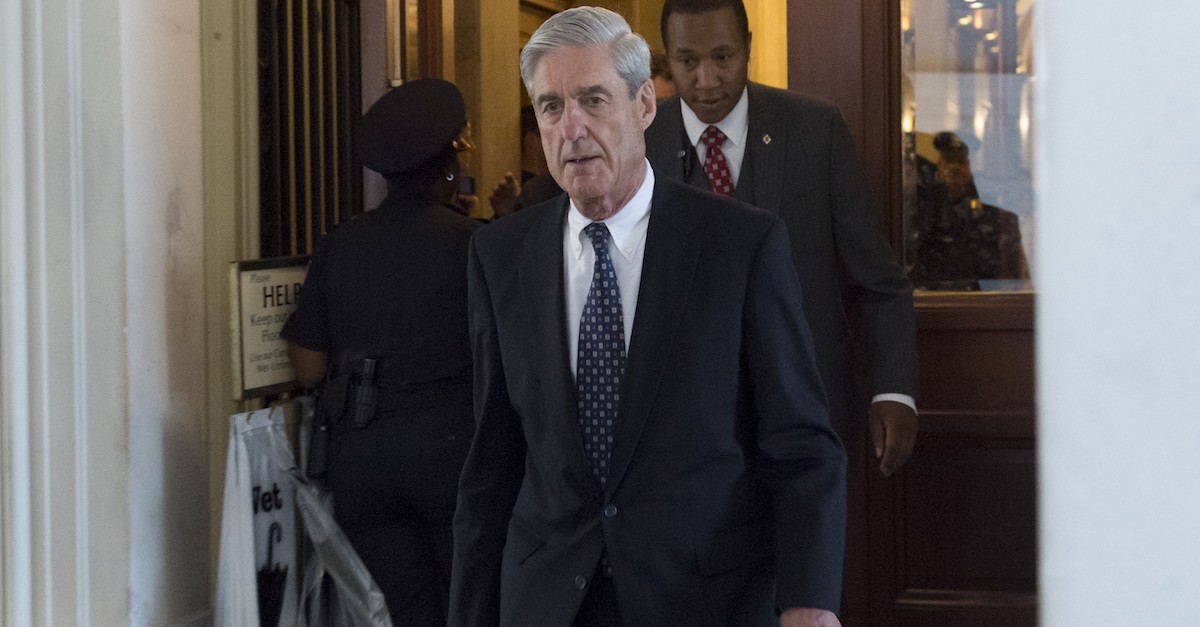
Special Counsel Robert Mueller is reportedly set to close out the year with a series of court filings against figures in President Donald Trump‘s orbit who are believed to have worked to steer foreign policy toward a more Russia-friendly posture.
According to The Daily Beast’s Erin Banco, those filings will allegedly detail conversations regarding potential sanctions relief for Russia–including various “offers and counter-proposals” and how they were presented to central members of the Trump 2016 campaign and the 45th president’s then-incoming administration, per three anonymous sources said to be “familiar with Mueller’s probe.”
Banco’s report theorizes:
The new court filings could also answer a central question of the so-called “Russia investigation”: What specific policy changes, if any, did the Kremlin hope to get in return from its political machinations?
Experts surveyed in the report also suggested some broader implications–all bad for the White House.
Paul Pelletier is a former senior official with the U.S. Department of Justice and one-time attorney for the special agent in charge of the infamous Bureau of Alcohol, Tobacco, Firearms and Explosives gun-running probe known as “Operation Fast and Furious.” In comments to the Beast, Pelletier speculated about Mueller’s next moves regarding Moscow.
“During his investigation Mueller has shown little proclivity for chasing dead ends,” he said. “His continued focus on the evidence that members of the Trump campaign discussed sanction relief with Russians shows that his evidence of a criminal violation continues to sharpen. This has to come as especially bad news for the President.”
This bad news likely concerns President Trump’s former “fixer” and personal attorney Michael Cohen. In late January 2017, Cohen was given a purported “peace plan” by a Ukrainian lawmaker that would have lifted U.S. sanctions on Russia. There was also a contemporaneous request by Trump to ease those same sanctions, according to previous reporting by Michael Isikoff. Whether the Cohen-received “peace plan” brought influence to bear on Trump on the issue of sanctions is an open question.
What is known is that Trump’s efforts toward easing sanctions–allegedly somewhat halfhearted–didn’t really go anywhere.
“The Russians were definitely looking to ease sanctions, or the relaxation of sanctions,” said an unnamed Treasury official cited in Banco’s report. “There was clearly a person they supported in the election and Trump clearly had a favorable view of Russia. But the transition was a mess and it took more time to get their feet under them. By the time they got their stuff together, Congress was increasing sanctions.”
Still, discussions about real, potential, or perceived quid pro quos involving U.S.-Russia sanctions are likely to have piqued the special counsel’s curiosity–discussions that caught prosecutors’ attention after talking with former national security adviser Michael Flynn. Flynn, who is being sentenced on Tuesday, pleaded guilty to lying to the FBI about sanctions-related conversations with Russian ambassador Sergey Kislyak.
Angela Stent, former national intelligence officer who specialized in Russia during the George W. Bush administration, explained the potential import of Flynn’s testimony to the Mueller probe.
“Sanctions conversations that happened after November are more serious,” Stent told The Daily Beast. “At that point Flynn, for example, would have already known he was going to be part of the administration and those conversations would have included plans for what might happen.”
So, what happens next here? Could be that some of those aforementioned redactions in the Flynn filings will soon escape the censor’s pen.
[image via Saul Loeb/AFP/Getty Images]